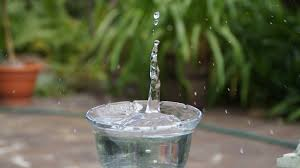It’s Water Week, and that means we’re reflecting on the importance of water workers and clean water initiatives in the U.S. Heneghan and Associates, P.C. (HA) is grateful to these professionals for their work, and our Water and Wastewater department is happy to work in the water sector alongside them!
Every year, Water Week serves as a chance for water professionals to combine their resources and support water legislation. Many of these professionals travel to Washington D.C. to advocate for better access to affordable, reliable and clean water. They attend meetings with Environmental Protection Agency (EPA) officials and Congressmembers, and they lobby for policies that support the water sector.
It’s impossible for us to survive without access to clean water. But there are many people who don’t have this access, and even more who live in fear of water scarcity every day. According to the World Wildlife Fund, 1.1 billion people currently don’t have access to clean water, and two-thirds of the world’s population might experience water shortages by 2025. Only 3% of the world’s water is freshwater, and of that, we only have access to one-third of it; the rest is frozen in glaciers or otherwise inaccessible.
These are scary statistics, but by doing what we can to promote conservation and spread awareness, we can help ourselves avoid water scarcity and improve water access to all. This Water Week, we’re going over some of the ways you can conserve water (and money!) and support the water professionals in your town.
- Don’t run the water when you aren’t using it. It’s tempting to keep the tap on while you wash dishes or rinse vegetables, but this is dollars down the drain. Doing little things, like filling a bowl with water to wash vegetables, will save on wasted water; plus, then you can give any leftover water to your houseplants. According to CropLife International, something as simple as keeping the water running while you brush your teeth wastes 4,000 liters of water a year. If you turn off the faucet while you do these tasks and only turn it back on when you actively need the water, the water can be used somewhere else and your water bill will thank you.
- Use cold water instead of hot. Heating water uses unnecessary energy, and you waste water by letting the faucet run while you wait for it to warm. Washing laundry in cold water not only conserves energy, but can also be better for your clothes, according to The Washington Post. (And while you’re at it, only run your washing machine when it’s full; no more small loads!) If you can swap hot water for cold water in small ways — when you’re washing your hands, for example — you’ll save a significant amount of energy.
- Don’t flush wipes. On behalf of the water engineers at HA and water professionals everywhere, pay attention to whether your wipes can be flushed, and avoid improper disposal because this can cause pipe blockages. In addition to the possible damage to utilities, improper wipe flushing can also threaten the health and safety of the water professionals who have to clear the blockages. According to the groups that organize Water Week, wipe flushing results in roughly $441 million a year in extra operating costs. It’s a big strain on both the water workers and the water systems.
- Think about your food consumption. Food waste not only hurts your grocery budget, but believe it or not, it also wastes water. Get a feel for your household’s eating habits, and start noticing how much food goes in the trashcan rather than your mouth. The World Wildlife Fund notes that agriculture uses up to 70% of our accessible freshwater to cultivate crops, and according to CropLife International, it takes 15,000 liters of water to produce a single kilogram of beef. Only buying the food you’ll eat will reduce wasting these resources. Additionally, honoring Meatless Mondays or other ways to cut down on beef consumption can dramatically reduce water waste.
- Support water organizations and initiatives. Water Week is sponsored by several water and water-adjacent organizations, including the American Water Works Association, the National Rural Water Assocation and the American Society of Civil Engineers. These organizations provide guidance, training and resources for people in the water sector. They often support legislation to improve water infrastructure and access to clean water. When we turn on the tap, we don’t usually think about where our water comes from or how it gets to us. But it’s because of these organizations and their initiatives that we have sanitary water and wastewater systems. Water Week is a great chance to learn more about these groups and their goals.
This Water Week, we’d also like to take a moment to remember that many U.S. communities like Flint, Michigan are still dealing with water crises. There are people in the world who have never had access to clean water. We’re lucky to live in an area where safe water is readily available, and we’re thankful to the water professionals and engineers who make this possible.
At HA, our Water and Wastewater team make us proud every week, but we’re showing them a little extra love today for the hard work they put into their projects and their efforts to help supply clean water to our communities. Do what you can to conserve water and support your local water professionals! If you’re curious about Water Week and want to know more, check out their website. And to learn about water and wastewater engineering and how HA can help your town design effective systems, click here.

